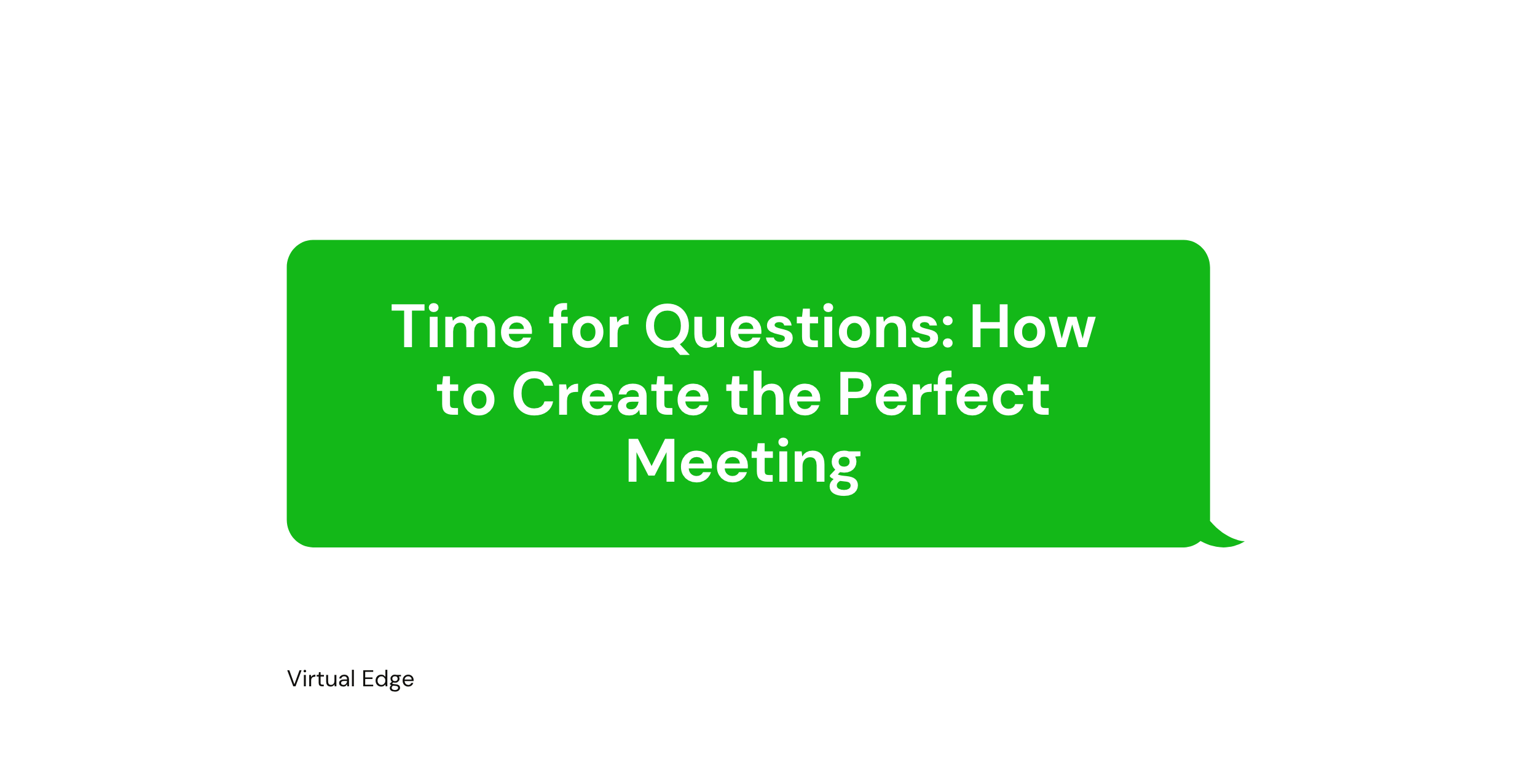So you’re going to have a meeting, and this time your meeting requires a pitch or presentation. You may not think of this until the day of- but here’s a question: When is a good time for questions?
Common practice says the time for questions is during or after a presentation. However you might want to consider a third option, questions before the meeting.
Beginning
Questions at the beginning of the meeting is best if you’re a skilled presenter and speaking on a subject you’re deeply knowledgeable about. Allowing meeting participants to ask questions before your presentation gives you an opportunity to get a pulse of the hot topics on everyone’s mind- and an opportunity to adjust your presentation accordingly. This works well when you have the questions written down and reference each as you go through your presentation.
During
Questions during the presentation are best for small groups. When fielding questions during your presentation its important you keep track of the time allocated, at a certain point you may want to delay questions until the end.
After
Most of the time people answer questions at the end of their presentation. Participants can ask informed questions and your presentation may have answered (or should ahve answered the most common questions).
Post-meeting
No matter when you take questions the most important time for questions are often post-meeting. Post meeting there are two things to center on. In a client meeting, ensure you’ve honed in on your client’s root concerns. I typically would dedicate extra time, to be sure I understand the root motivators or concerns driving my client’s questions. Second, ensure you document the questions you don’t have an opportunity to answer or don’t have the answer to. Your follow through will always be appreciated.
